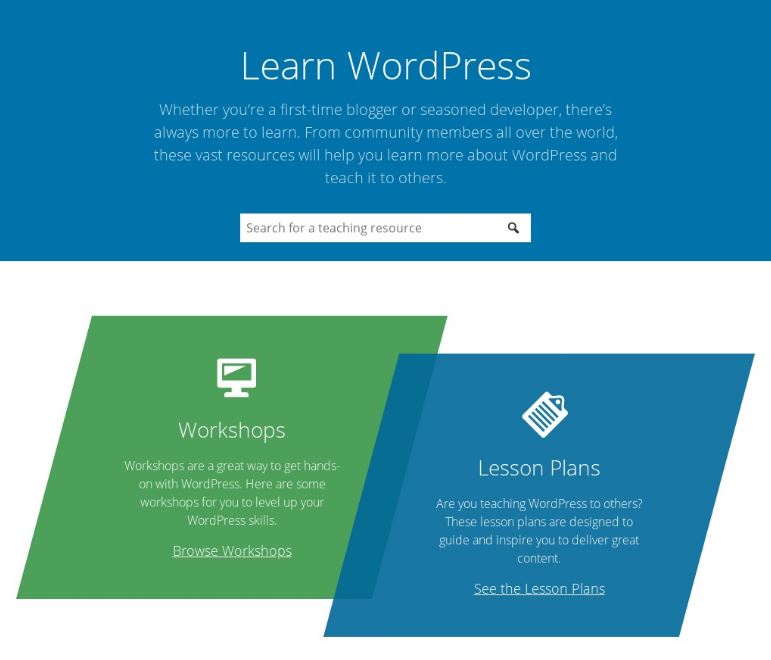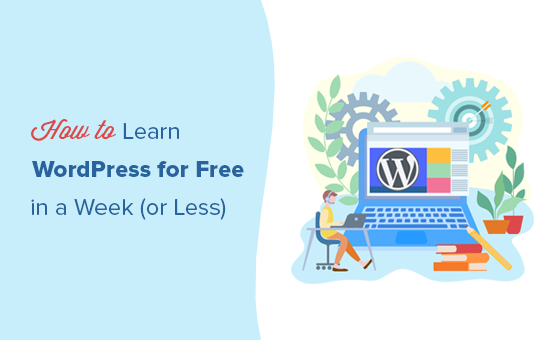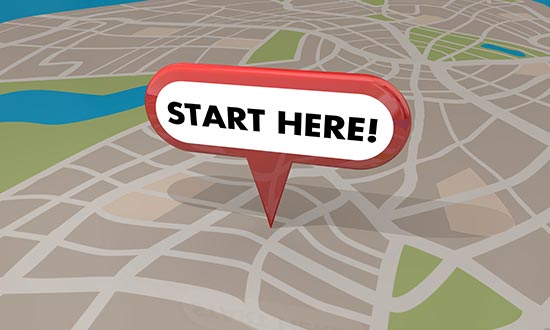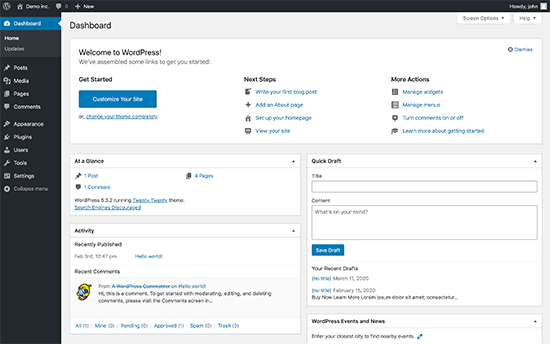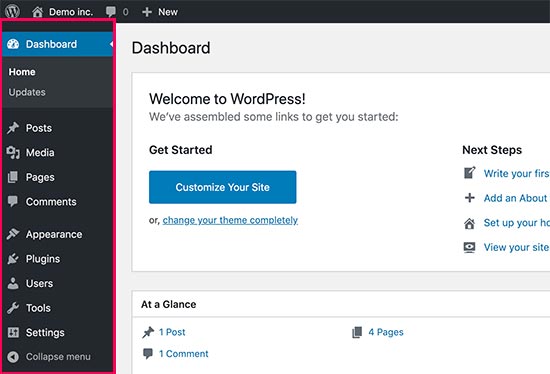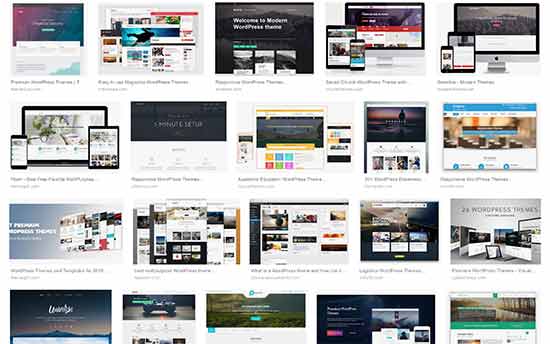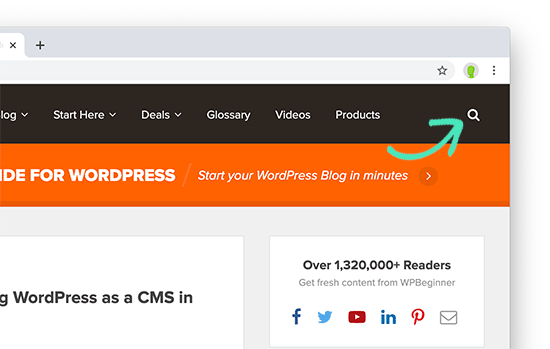[00:00:00] Nathan Wrigley: Welcome to the Jukebox podcast from WP Tavern. My name is Nathan Wrigley. Jukebox is a podcast which is dedicated to all things WordPress, the people, the events, the plugins, the themes, the blocks, and in this case, learning about how WordPress works. If you’d like to subscribe to the podcast, you can do that by searching for WP Tavern in your podcast player of choice, or by going to wptavern.com forward slash feed forward slash podcast.
And you can copy that URL into most podcasts players. If you have a topic that you’d like us to feature on the podcast, I’m keen to hear from you and hopefully get you or your idea featured on the show. Head over to wptavern.com forward slash contact forward slash jukebox and use the contact form there.
So on the podcast today we have Courtney Robertson. Courtney is a developer advocate at GoDaddy Pro who has a passion for teaching and learning, specifically about how to use WordPress. Her work for GoDaddy Pro involves outreach to developers, but it also includes time to help contribute to WordPress as well. Courtney uses this time to assist with the WordPress training team, as well as Learn WordPress.
If you’re new to WordPress or have been using it for years, there’s always something new to learn. WordPress never stands still. In the recent past, the adoption of blocks and full site editing has meant that the way of interacting with WordPress has changed entirely.
You could of course, figure out how everything in WordPress works all by yourself, but it would be great if there were freely available materials, which you could use to accelerate your knowledge. That’s what Courtney is involved in and what this podcast is all about.
We talk about the history of the project and how it was started as a way to assist people in putting on WordCamps and meetups. Since then, the scope of WordPress training has grown enormously.
We discuss what areas of WordPress are covered by the learning materials, what constraints there are on the types of content that is made, and what formats they take. Who creates the content and how do they ensure that it’s up to date and have a high enough standard? Can people become certified if they complete different learning paths? We round off by talking about how you can become involved with the team if you’re keen to help others learn more about WordPress.
If you’re interested in finding out more, you can find all the links in the show notes by heading over to wptavern.com forward slash podcast, where you’ll find all the other episodes as well.
And so, without further delay. I bring you Courtney Robertson.
I am joined on the podcast today by Courtney Robertson. Hello Courtney.
[00:03:29] Courtney Robertson: Hello Nathan, how are you today?
[00:03:31] Nathan Wrigley: I’m really good. Thanks for joining us on the podcast today?
We are going to talk about learning all about WordPress, how you might learn about the things that are going on in WordPress and potentially how you may contribute to that learning process for other people.
But before we get into that, Courtney, I always ask a fairly generic question at the start. I want some orientation really, so that people who are listening know who you are. Would you mind just telling us a little bit about yourself and your relationship with WordPress.
[00:03:59] Courtney Robertson: Sure. So I first found WordPress because I was teaching in a classroom in 2006. Needed both an LMS and a blog. And at that time, LMS was not an option inside of WordPress yet. WordPress was really just getting started. So I remember, I think around WordPress version two, installing it and figuring out what was going on.
I have spent some time building sites for clients. And then I found myself back to teaching again with high school students. Teaching WordPress development this time. And it would have been around 2015 in a career technical school. Later I went on to work at a few plug-in companies. I got a lot of experience in The Events Calendar. Writing technical documents, knowledge-base articles, making sure front of sight was updated along with all of our releases.
And then later found myself teaching WordPress development at a front end dev bootcamp. So I had both high school students and adults that were laid off due to Covid, going through a program free of charge to them. And in fact, our high school students were paid to do this. My students got to speak for WordCamp Philly, so that was really exciting.
And then I found that I really wanted to go a level up, and make the training material that any institution could use. I found the material needed to teach WordPress development successfully, to get folks actually employed in the WordPress industry. And so an opportunity opened up at GoDaddy Pro for me as a developer advocate, and that affords me some time to continue contributing to the training team.
[00:05:37] Nathan Wrigley: Would you be able to just elucidate a little bit more about the GoDaddy Pro angle? How does that work? Are you essentially employed by GoDaddy Pro and they allow you to have a proportion of your time over at the learn project that we’re going to be talking about later?
[00:05:52] Courtney Robertson: Yes, that would be correct. So I am a developer advocate, which means that my internal work involves our outreach and our community efforts, specifically oriented for developers. But also this role is one that involves contributing to WordPress itself. And the avenue that I take with that is to contribute on learn.wordpress.org or the WordPress training team.
So in companies that have folks contributing to the project. Some are full-time sponsored. Some get a certain number of hours per week, or per month, or however the company chooses to allocate that to contribute towards WordPress.
[00:06:32] Nathan Wrigley: Now I’m guessing, and we’ll come to that a little bit later. I’m guessing that there’ll be an opportunity in this podcast to talk about how other people may become involved. Before we get to that, let’s just deal with what the whole learn project is. And again, it’s a fairly generic question.
Would you just give us some, some understanding of what we might find, what the history of learn is over the last few years? Basically, what is the learn project all about?
[00:06:57] Courtney Robertson: Yeah. So the team behind the learn project is the training team. And we’ve been around since 2013, and have been working on creating content that would be published eventually on learn. learn.Wordpress.org launched in 2020, during the height of Covid. So we already had a stockpile of content ready to go, and we’re able to load that up.
Learn has several different purposes or formats. Different audiences can come to learn. So the training team began with a mission of creating material for meetup organizers. If you’re hosting a meetup and you’re doing the work of preparing the meetup, but then you also need to figure out what’s my topic and who’s presenting and all of these things.
Well, the training team has been making lesson plans available, so that a meetup organizer already has topics at the ready. With research done, and all of the resources available. Indicating, cover this topic, here’s how to present the information. But also those same lesson plans have been used in a few different week long type of workshops.
So we have quite a good bit of material in that regard. We also have workshops. Workshops are videos. They’re on demand, and their audience is direct learners. So somebody that wants to find out how to do the thing, at any time of day can come and watch the video. The videos could also be played, I have heard that several meetup groups have done this during a meetup or string, a series of them together.
And then we have courses. And courses are sort of a roll-up of both of those pieces. So if you think of your years in school. You had a specific subject that you were studying. That was an entire course. And each day your instructor or presenter would have a smaller segment for just that day to cover.
So a course would bring in some of the content from lesson plans and some of the content from workshops. And it would be self-paced, on demand. And those courses, when you complete them, do show a completion notification, I would say, on your wordpress.org profile. So if you’re looking at your wordpress.org profile and you look at the activity, you would see if somebody has completed a course.
We have a proposal out to move those to its own designated tab. Going to give the heads up ahead of time, we’ll never call them batches because teams use badges to indicate contributors to teams in WordPress. But learn.wordpress.org is a great resource for somebody that wants to come and learn all kinds of things.
Whether you are teaching others, or on demand learning, and you just need that one specific piece or want to go through an entire course. And at this time, I believe we’ve got five courses on getting started with WordPress, all the way up through using FSE, full site editing, to build out a site. And we have a few contributor courses that have moved over that the community team had housed previously, to help folks get onboarded with contributing.
And then finally we have social learning spaces. And you may see those in your WordPress dashboard on the upcoming events area, but you also can find them on learn.wordpress.org. It is technically a meetup group under the hood and uses Zoom. These are sessions that happen and there are several throughout the week. Every week, there are several going on that you could swing by for about an hour. Sometimes an hour and a half or so, and learn whatever the topic is that’s being presented that day. Great folks like Daisy Olsen have been running a lot of those along with Sarah Snow. I’ve got one coming up soon with Anne and Sarah. Anne, a lot of us know, Anne McCarthy. We’ll be doing a call for testing using one of those social learning spaces.
[00:10:31] Nathan Wrigley: That’s fabulous. I genuinely didn’t know that prime mover of the whole learn project was to assist people putting on meetups. Was the intention there just to facilitate people who were potentially, maybe trying it out for the first time. We were all in lockdown, as you said, and, and it’s quite daunting, isn’t it to
[00:10:49] Courtney Robertson: Yeah.
[00:10:49] Nathan Wrigley: to begin something like that, and just the process of setting one up might be daunting enough, but then to actually find material that you can talk about, was that the intention there? Just to bootstrap and kickstart more and more meetups?
[00:11:00] Courtney Robertson: That was the intention in 2013. It has grown significantly, as you can imagine in that time. As has WordPress and the WordPress community. So in 2013, meetups were really just a new thing. And we were looking at ways to support meetup groups. And as things have evolved, we now want to help the job pipelines. We would like to provide some official guidance as to what should be covered for what skillsets.
[00:11:29] Nathan Wrigley: It’s a really exciting time in WordPress. There’s so much happening. A lot of that centered around the new editor and full site editing and so on. So there’s definitely lots and lots of opportunities for things to be taught. I’m just wondering, in terms of the types of content that you will be putting or potentially that you will have put. Do you have any sort of constraints on the remit of the project?
So for example, is it always going to be focused on the core of WordPress? Things that you can do inside of Core? What I’m really asking there, I suppose, in a backhanded way is do you stray into other areas, for example, things like third party plugins and things like that?
[00:12:07] Courtney Robertson: Good question. We began our delve into third party plugins at WordCamp US in 2015. Those that have been around a while may know this. If you wanted to add some custom CSS to a site, before the customizer had it available, we needed Jetpack to do that. So as a team, we essentially indicated we want to make use of third party plugins.
The parameters need to be that it’s in the wordpress.org repo. As things have launched, our main focus has started really with how to use WordPress to put a basic site together. However our audience for who can learn help is really vast. So we’ve formed some guidelines around third party plugins, and also for those that are hosting some social learning spaces. If somebody volunteers to host one, and many folks do volunteer to host those, we can’t be overly self-promotional, and if we are mentioning in any of our training materials, any type of plugin or something to that effect, that it be available, plugins, themes, be available through wordpress.org.
We try to draw on the theme unit test data for our dummy content. We use the photos repo for our media. We use the showcase for showing off what WordPress is capable of doing. So we reference our own material as absolutely much as possible in that process, and have some just general guidelines for how we can cover the material safely for everybody.
[00:13:37] Nathan Wrigley: Yeah, I feel that you’ve answered that really comprehensively. It feels very much like the same kind of constraints that we might have if we were, for example, putting on a WordCamp or something. The nature of the conversation that we could have as a presenter would feel like it’s falling under the same kind of boundaries.
Yeah, that’s really cleared it up, thank you. Now, the project itself, the WordPress project, as I just alluded to a minute ago, it is really changed over the last few years. If you roll back the clock five or six years, the way WordPress behaved, the way that you created content is now completely different.
And we’ve got all sorts of things which are coming down the pipe and they’re coming thick and fast. Things like full site editing and all of that kind of stuff. I’m just wondering what your priority list is? It feels to me like this question is basically asking what’s the roadmap? What kind of things that you’re prioritizing? Because there must be a limited amount of hours in everybody’s day that’s connected to the team and you’ve got to decide, okay, this feels like it matters more right now. Can you give us some idea about what are you thinking for the learn platform in the near future?
[00:14:40] Courtney Robertson: Yeah, that’s a great question. So our team is comprised of both sponsored and self-sponsored or volunteers in all capacities. So that looks like there are a few folks that are sponsored by Automattic led by Hugh Lashbrooke, to be part of our team, as well as delightful project manager, Hauwa Abashir, and a plugin co-founder Pooja Derashri.
And so that’s the core of our team. However, we have a lot of contributors and I say this first, because in open source, we can have some high-level type of priorities, but as you know, when it comes to people volunteering to do something, they’ll volunteer to what they want to do, and they’re not going to volunteer for what doesn’t interest them all the time.
So with our priorities, we have a few ways of looking at priorities. The content priority is lately focused on doing as much as we can that is geared towards a release as close to release as possible. We have some great ways of trying to work a little bit into the future. So that right now we’re already preparing material that will come out with the next release.
That would be 6.0 at the time of today’s recording. But we also have some other priorities as well, as you can imagine. We’re managing a website, a large website that is on a massive multi-site install. And so some of those other priorities look like, we just moved the team from Trello over to GitHub to help track all of the activity of what we’re creating and what our roadmap actually looks like and what our priorities are. That also helps surface our activity and contribution to the project, because that too then will help track with our .org profiles.
We have some needs, some really big needs coming up. There is ideas around merging lesson plans and workshops. So that would be the instructional materials as well as the video that coincides with it, that would need to develop a resourcing. We would like to do a little bit more with the UX. We had a UX audit come back and we would like to do some more with the front of site. But again, that too would need some developer lift.
And at this time our theme is not block-based and in our case, that could be helpful for us to help lay out that content in a way that would be more beneficial for learners as they come in. To find our roadmap, there will be lots of show notes available. To find our roadmaps, we have a few places, and I know that seems a little tricky. Go to make.wordpress.org/training, and from there, you’ll find a big blue box that talks about the training team’s goals for 2022. One of the next goals aside from content is a needs analysis. So that means actually talking to the WordPress community and saying, everything from a hobbyist, a small business owner to a large scale enterprise level agency.
What do you need for training your staff? How can we help you reach those goals? What do you think the highest priority of content should be? And in what order should that happen? Get the feedback of what actually matters. And what’s going to be most beneficial. Who’s using this and how can we make it better?
We also have sprints, and those sprints are, what are we working on just this month that is both content or the other annual goal type of projects? And so each month we’ll publish at the beginning of the month, what we’re doing this month, and at the end of the month, we’ll post a recap. How did it go? What did we get done? And we have our issues in GitHub and there’ll be some links available for those too. So if you want to see what’s the highest priority thing that I can contribute to, you could go right to our GitHub repo that shows you exactly that issue.
[00:18:23] Nathan Wrigley: I have to say Courtney, you’ve done a fabulous job of giving me links. Virtually everything that Courtney is mentioning is going to be referenced in the show notes. So firstly Bravo, thank you for making my life easier and doing that. That’s brilliant. But just to say if you are curious about any of these bits, you’ll be able to find a portion in the show notes, which relates to each of the questions that we’re asking and in most cases there’s several links to follow through there.
I’m just going to ask a question related to what we’ve just talked about, and that is, I’m going to use an example, and the example I’m using is the BBC, which is the British Broadcasting Corporation. The BBC is funded by tax payers essentially. We all have to contribute if we have a television set, and because of the fact that we’re all contributing there’s a thing called the BBC charter, and the BBC charter, now it may be imperfect, but it’s what they got. The charter compels the BBC to make programming for everybody.
So it may be that there’s a giant audience for this type of program, and there’s a considerably smaller audience for this type of programming, but the charter, in theory, compels the BBC to make programming despite the fact that the audience may be smaller. You can see where I’m going with this probably. I’m just wondering if you have any of those kinds of things. Does it always come down to the numbers? In other words, if you can see that there’s a giant need for this, because everybody’s clamoring for this kind of tutorial or whatever, well, that’s obviously important, but there may be something over here, a bit of an edge case, really truly crucial to the people who need it, though their numbers may be small. I’m just wondering if there’s any those, kind of, bits that fit into the bigger jigsaw.
[00:20:02] Courtney Robertson: They do. Those are areas that we would often allow the individual that has such an idea for that topic to help develop. Because again, open source, we allow the contributors that would like to do something. If they say this is the one thing that I am willing to do, then, okay then, we’ll work with that.
That said we do have some priorities as you indicated, but some things will work across multiple pathways. And so by a learning pathway, what I mean is, if you think about who can learn help, and there’s actually a post that is cross-referenced to something that Josepha had helped create. I want to say it was about two years ago.
When you think about all the edge cases of who can WordPress help, how is WordPress used? Josepha and Mark Uraine wrote a piece on make WordPress updates awhile ago about care and influence, a theory about the WordPress community. And it’s this broken down idea that we have, Core, central folks contributing. Then we have contributors on the project. We have extenders that are using WordPress. That will be what we’re doing right now. That’d be like a podcast about WordPress. Users of sites and also visitors of sites. And so when you break that down into actual kinds of careers or professions, or even just hobbyists, right?
That is a lot of things. In the extenders category you have podcasters and you have newsletters, and you’ve got people that use WordPress for marketing purposes. Some are developers, some are in quality assurance. Some are support staff at companies. So who can learn help? Well, there’s a lot of varying needs like that.
And I could see a lot of those edge cases that you mention, still applying to a lot of people. So learns really important. I think that learn is a great tool to help folks into not just the community in terms of events, but the community in terms of understanding what can I do with WordPress? And if WordPress is related to my profession, what do I need to know, and how can I best leverage, what learn has to offer to help me get there.
[00:22:11] Nathan Wrigley: Yeah, thank you. Okay, let’s move on to the people who may be asking those questions of you. If I was to come to you and I had a particular topic in mind, and there was something that was really troubling me, and I wanted to get to the bottom of it. Are there any ways that I can ask, I don’t know, beg, plead maybe the right words for certain content to be created?
[00:22:31] Courtney Robertson: Yes. So one of the ways is that if you need a little bit of extra help in doing that, if you are able to get to the make WordPress Slack and the training team inside of that, and you can find the link again from the training team site at make.wordpress.org/training. We are glad to give a little extra hand holding through that process.
The other thing that we welcome folks to do is, go to our GitHub repo and submit a topic as a lesson plan idea. That does not mean that you need to create the lesson plan. If you would like to help create that or create a workshop, you may absolutely do that. But if it’s just, I have this one idea, this one thing, or I have got a vision for a course, and I could tell you every step along the way of what needs to go into the course, we are happy to work with you in that process.
So we would begin with starting an issue in our GitHub repo and to be clear, if you’re not accustomed to GitHub, it’s about on par with submitting a form or a comment on a site. So our way of submitting an issue will look similar to that. You’ll get some preloaded template that asks you to fill in a little bit more information for us. And then we’ve got that idea of ready to go.
[00:23:44] Nathan Wrigley: Yeah, GetHub can be very intimidating to look at can’t it, if you’re there for the time, but like you say, it’s merely a, a set of comments, so, oh, that’s really helpful, thank you. In terms of who is making the content, how the content is made, what does that look like? I’m going to sort of cross two questions here, and we’ll get onto learning paths and things like that, but just wondering, who’s actually putting the content together.
Do you have particular panel, do you give certain members of the team the job of going away and create a video for that particular thing based upon these guidelines? Is it always the same people or can other people contribute their content? In other words, could I contribute my content? And if that was the case, are there any guidelines that would be helpful to know about?
I mean, there’s obviously going to be things which are out of the remit, boundaries that I shouldn’t cross and probably ways that you would prefer me to curate that content.
[00:24:35] Courtney Robertson: Yeah, absolutely. I would love to have you create a video. I love listening to your voice. Anyone is most welcome to help create that content. In fact, when learn launched, because we had this stockpile of lesson plans over the years, I counted nearly 200 contributors, at the launch of learn that had contributed over the years to the training team. That’s a staggering number for the work that we did.
And I think back at all of those WordCamps when we had contributor days and all the folks that we met. It was great. So we have lots of people help create the content. But as you can imagine, during Covid, a lot of activity came to an absolute halt. I myself just resurfaced within contributing during that time, and none of the folks were around or available then. Literally no meetings had happened for several months and I had a hard time finding folks. We’ve grown since then, a lot. And the folks that are contributing these days, as I mentioned, there is a contingent of folks by Automattic that are contributing.
I am there a good bit as well by making content, but we have a lot of people that are not sponsored. And I had spent about seven years in that category myself. And so I want to be very thoughtful. We’ve got a lot of folks that are absolutely delightful to work with. Speaking highly of my team reps as well.
They do contribute so much in the way of content and proofreading. We open up opportunities to help folks proofread the material that goes out or create some feedback for others that are creating that content. So anybody is welcome to help come and make this stuff too.
[00:26:12] Nathan Wrigley: In terms of the guidelines though, what would cut muster for inclusion? Presumably there’s barriers in terms of, okay, that’s too short. That’s far too long. The quality of the audio there is too poor. I think we probably could have covered the topic in half the time or whatever it may be. There are probably guidelines for keeping the quality high.
[00:26:31] Courtney Robertson: That is true. We are working on improving that quality, and we do have a post that I did not provide a link to it ahead of time, and I will dig that back out for you. But it is basically the idea when we first launched, we’re new, in terms of creating videos. We’re new in terms of creating courses and let’s get going and learn as we go, what we’re doing.
Our earliest videos, we learned a lot about needing to keep content current with revisions. That’s a really big struggle. When WordPress ships a big update, we have to come back and revise things. Also we have learned a good bit about, if we need the person’s video, their face on screen or not, about how to create these videos.
The kind of quality that we’re looking for. We are flexible still within those parameters. In fact, one of our highest videos, I think was done during a contributor session for WordCamp India. And there was a bit of background it. So we’re learning. As we make learn, we’re learning and we would love to have lots of global representation. We would love to have a high quality production to it, but we’ll help each other get through that process.
[00:27:43] Nathan Wrigley: I love the meta there. We’re learning to learn. That’s brilliant. The different formats that you do, actually no, I’ll come back to that in a moment. I’m going to ask about the way that your team meets, because we’re currently talking about people contributing their time, and you mentioned that you can go and do things like contribute in GitHub with comments and so on.
But I’m just wondering if you became much more involved in the team and you were there regularly, not just committing a piece of content once in a while, but really digging into the team and trying to help out on a regular basis. It would be quite helpful to know what that might look like. Where do you hang out? Where do you do the work?
[00:28:17] Courtney Robertson: Sure. So, forgive my American mindset about time, but on Tuesdays at noon Eastern time. On Thursdays at 7:30 AM Eastern or, oh, I forget exactly what time it is for Pooja, but she runs an APAC specific time zone meeting. And so it’s the same time and option available for both of these meetings. Those happen by the way, all in Slack, those are entirely Slack based chat messages, as you would find across the 20 now different WordPress teams. We conduct our meetings through Slack. We have coffee hours as a get to know folks session. Those are delightful to stop by and see. We’re running those Fridays at 9:00 AM Eastern. However, we are open to exploring alternative times for that.
We’ve got some folks that are traveling that are our normals that help conduct these. So we’ll give it a few more weeks before we start looking into different time zones. We do those through Zoom. We find that that generally meets the most accessible needs and we have the accessibility team rep often join us too. So that’s delightful. And then you can find us, hopefully in the near future at a WordCamp close to you at a contributor day.
[00:29:31] Nathan Wrigley: That would be nice.
[00:29:32] Courtney Robertson: Yes.
[00:29:33] Nathan Wrigley: Let’s hope that’s true. Now my understanding is that broadly speaking people fall into different types of learners. You may be kinesthetic, or you may be auditory or visual or what have you. That is going to inevitably lead to people, desiring different types of content. And you mentioned a moment ago, you called it learning paths, I think you said. What different formats have you got? I mean it may be that that is still to be explored. Maybe you’re going to invest time and effort into different things in the future, but whether you’ve got it live at the moment or whether it’s just a, an aspiration, tell us the thinking behind that.
[00:30:06] Courtney Robertson: Yeah. Our content types, are lesson plans, workshops, courses, and social learning spaces. Our audience is quite vast, but then if you break it down into an individual, an individual may learn in different methods. So some folks really like videos. Some people really like to read, like it’s a book. And so our courses approach different learning styles.
And the more that we can do that, the better. Our courses do suggest projects to extend upon what you’ve already learned. So often that would look like doing the work along with the course, and that would be delivered both in text and video form. And then having a suggested, now here’s a challenge to try on your own. To give you that hands-on experience without being guided. The more ways that we can continue to help cater to individual learning styles, the better.
Also along those lines my teaching hat background comes in here. It really matters to me that we are available in the global space. And so that also looks like translation opportunities, because one of the things about learning styles is that, if you think about folks in, you and I both speak English. English second language individuals, that would be a student in a school whose first language was not English often needs a little extra support when they’re just beginning to be immersed English.
And so, I don’t find it to be particularly reasonable or fair that somebody that is not primarily English is only presented training materials in English. We need a lot of support around getting the content available in as many languages as we possibly can. We also need then to help work on the initiatives that WordPress has to be multi-lingual.
So at this time that’s on the roadmap, but it’s not until I think phase four in the Gutenberg project to be fully multilingual. So that presents a challenge then on Learn, because how do we make our courses available in different languages? We need some help.
[00:32:08] Nathan Wrigley: Well, let’s hope that somebody listening to this is, uh, is going to step in and assist you with that. Just a thing, I may be jumping the gun here, and it may be something that you’re unable to talk about. You mentioned in our exchanges prior to recording that there was potentially in the future, some path towards certification. So I’m guessing, you know, you put the time in, and as a result, you are handed something in exchange to prove that you pass the test, if you like. You achieved what it was and you got through it all. Just tell us the thinking on that, even if none of it’s particularly concrete right now.
[00:32:42] Courtney Robertson: Yeah. So this is a podcast for WP Tavern. If you’re interested in the history of WordPress entertaining the idea of certification, you may search the archives here. I will say that certification as we see it. I also had some questions about several years ago, I would say, but what changed my mind first and foremost was that when I was teaching in the bootcamp and I presented to my leaders, here’s what individuals need to be job ready, and here’s the timeframe that that could be delivered in and what would be adequate for the amount of each programming language, plus then how WordPress pulls that together. It wasn’t provided, it was a challenge then to get individuals placed for jobs.
The resourcing for such material wasn’t readily available. So having a definitive here is what it would take to being basically job ready as a common industry accepted standard suddenly became a high priority in my mind. I realized, oh, if that was in place, it would be really easy to point to and say, here’s what folks need to be able to do. And here’s a pathway for how to learn that.
So at this time we are not ready to begin starting a certification initiative. We are looking in quarter four of this year. So the last three months of 2022, of beginning, a discovery session. A discovery session means to, again, talk to folks about what they need, what their concerns are. Also look at other open source projects and see what worked and what didn’t work.
I’ve been checking in with the folks that help form the certification over at Joomla. And I’m learning a bit about what has and has not worked for them. I’m keeping loose eyes on what Drupal is doing, but I think there’s something to learn from other open source initiatives that are not even about a content management system.
So look at how do they do this? What have they learned? How would that potentially work for us? Would that work for us? What other concerns does the community have? So, disclaimer, folks. Yes, this is a hot topic. Yes, it’s had a history. We’re interested. We want to talk. That’s where we’re at at this time. We want to talk about it and the conversations happening starting around October of 2022.
[00:34:59] Nathan Wrigley: Oh, a perfect time for us to release this then. You’ve got the people thinking about that in time for October. That’s fabulous. You mentioned earlier about resources for the learn project. And again, I don’t know if you’ve got an insight to deliver here. I’m just wondering how it is, how it is all funded essentially. Now you mentioned that your seconded from GoDaddy, forgive me the word wasn’t seconded it was whatever it was. GoDaddy provide you with the financial support so that you can lend your time to the project. What other resources are brought to bear. You mentioned that other people were seconded, there were volunteers and so on, but
[00:35:37] Courtney Robertson: Yeah.
[00:35:37] Nathan Wrigley: Is there anything else? Are there pots of money, which you can dip into provided by, I don’t know, sponsorship or different organizations who contribute to the project.
[00:35:47] Courtney Robertson: Wouldn’t that be delightful if I just had unlimited money to use on this. Oh, where could we go? So our team does have some resources provided for our team. In addition to, there are contributors across multiple other organizations, I will say as well, that do periodically pop by for some contribution to the project as well.
But we do have some resources. So a lot of teams in WordPress use Helpscout. Even Slack itself is a paid Slack instance, and I could be mistaken, but I believe that a lot of that financial work overhead is through Automattic. I would love to be corrected if so. We are using Sensei Pro, which is a learning management system. It is a plugin. The pro version just recently released, but that is owned by Automattic. Sensei has been an Automattic product for about 10 years. We do have an access through VideoPress. Should we need it? And VideoPress for WordPress TV is also how we embed our videos. So again, those two are provided through Automattic with Jetpack.
Meetups that would run through WordCamp central. We recently received both WP Sandbox and Insta WP as options that we can use. So when somebody is going through a course, when we’re new to learning WordPress, the hardest challenge is to get a WordPress environment set up. And with both of these tools, we are able to, whether it is social learning spaces or courses or something to that effect. We’re able to very quickly get folks a single link that takes them to WordPress install. That’s got today’s theme, plugin and some demo content ready to go so they can get to work on doing the activity, not be stumped by how to set WordPress up. So those are fantastic resources that we do have available at this time.
[00:37:30] Nathan Wrigley: Thank you very much. Is there anything else that I failed to ask you? Obviously, you know, you’ve really deeply embedded in this project and I’ve asked the questions that I wish to ask, but quite happy for you to tell us about something that I missed.
[00:37:43] Courtney Robertson: Sure, I mentioned that we focused in early on, on just getting started using WordPress, but we make space for all of these other types of things that folks might want to learn how to do with WordPress. There’s really almost no limit, other than if we’re mentioning a plugin or a theme, keep it within WordPress dot org, so other people can access it and use it.
But we do have some beginning workings of a developer content roadmap. I began forming this when I was planning what I needed to do at the front end dev bootcamp. I looked at it like at what point along the journey from installing WordPress and activating Hello Dolly to I’m going to build a multi-site WordPress instance, that power s thousands of sub-sites or something like that.
How do you learn how to do all of these things? How do you begin learning? At what point do you learn APIs? What about build tools like Webpack. Those that are high into development with no, oh yeah, at some point I learned this and that, and what logically would happen with that?
So we do have a higher level, how to learn everything from just getting started all the way through, I want you to do the most complex possible things available there. And I’m really excited that we will soon be joined by Jonathan Bossenger, as a developer educator. He is coming in again, sponsored by Automattic.
And will be contributing developer oriented content. So that, that roadmap that I began laying down while at the bootcamp will hopefully come into play with creating more dev oriented content. If you’re interested in seeing what is everything in a logical order, again, challenge, we, we need dev resourcing to help develop the site as well here.
So we have a pathway that is everything that we have made available. And it’s in a logical order, but it’s just a table at this time until we can get some more development on the site. So there’s a learn pathway link that I can provide. And then finally, again, the call-out is there, contribute, contribute.
We love to partner with folks along the way. I know this is a lot. I’m coming in as a former second generation computer teacher. So I have a bit of a runway and I’ve been working with the project since 2013. We’ve talked about a lot today. It seems a lot of a lot. We’re happy to help slow it down and connect you with exactly where you need to go. Because again, our team is made up of a lot of folks that think like teachers.
[00:40:16] Nathan Wrigley: In the course of this podcast, we’ve mentioned so much as you described, just to reiterate, if you’ve been listening to this podcast and you, you know, you’re maybe listening to it on your headphones whilst you’re driving the car or something like that. Don’t forget that the show notes will have all the links that Courtney’s provided and hopefully you’ll be able to get to the exact thing that piqued your interest. However Courtney, there’s one thing missing off those show notes, and that would be how we might contact you. If somebody has a need to speak to you on the back of this podcast, what’s the preferred way or ways of getting in touch?
[00:40:51] Courtney Robertson: Yeah, so to help lighten the load, if it is specific to the training team or learn, please swing through the channel inside of make.wordpress.org/training. You’ll find our link to get to our Slack channel there. That helps the right folks get connected with you, so if it’s a general team question. If you would like to find me specifically courtneyr_dev on Twitter, Courtney Robertson on LinkedIn, courtneyr.dev is my website. You can find everywhere I am there.
[00:41:19] Nathan Wrigley: Courtney Robertson thank you for joining us on the podcast today. I’ve really enjoyed it.
[00:41:24] Courtney Robertson: Delightful, thanks for having me.











